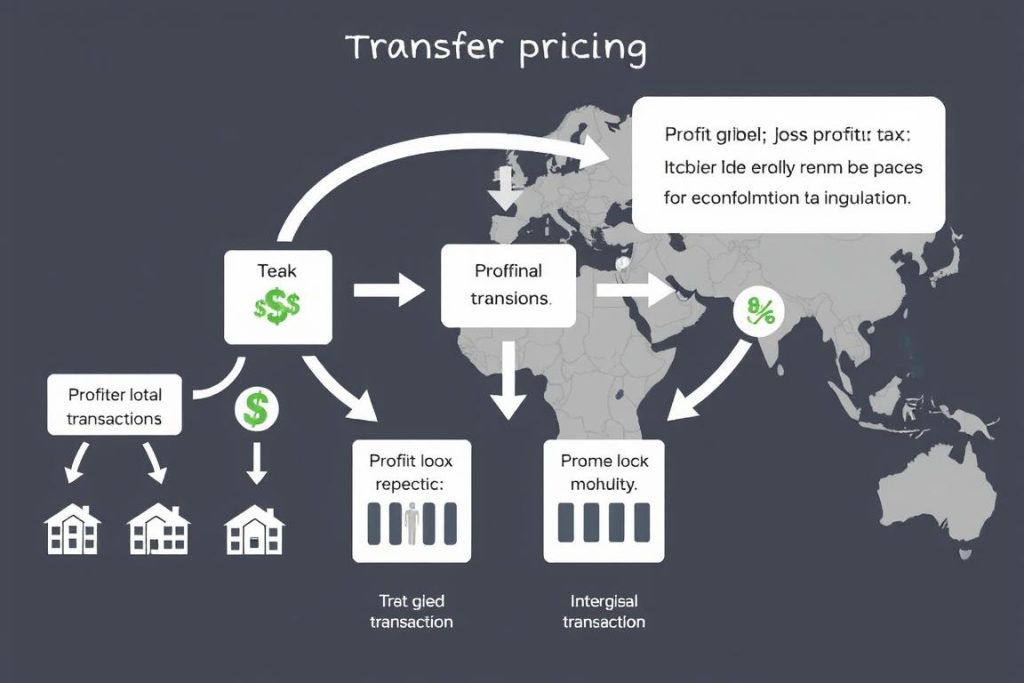A multinational business operates in multiple countries beyond its home country, maintaining production facilities, offices, and business activities across international borders. These global enterprises have become increasingly influential in our interconnected world economy, reshaping how business is conducted on a global scale. As globalization continues to accelerate, multinational corporations now account for approximately two-thirds of global trade, wielding significant economic and political influence.
The rise of multinational business has been fueled by technological advancements, deregulation policies, and the search for competitive advantages in global markets. Companies like Starbucks, with headquarters in Washington, USA, and over 32,000 stores across 80 countries, exemplify this global business model. While multinational operations offer numerous advantages for both companies and host countries, they also present significant challenges and potential drawbacks that must be carefully considered.
Multinational businesses create complex networks of operations spanning multiple countries, bringing both opportunities and challenges.
Advantages of Multinational Business
Multinational corporations offer significant benefits to both their home countries and the nations where they establish operations. These advantages span economic, technological, and social dimensions, creating opportunities for growth and development.

Multinational businesses often drive economic growth through investment, job creation, and technology transfer.
Economic Growth and Foreign Direct Investment
When multinational corporations establish operations in a host country, they bring substantial foreign direct investment (FDI). This initial influx of capital stimulates economic activity and can trigger broader economic development. For example, when Toyota invested in manufacturing facilities across Southeast Asia, it injected billions into local economies, creating ripple effects throughout various sectors.
This investment often leads to improved infrastructure as companies develop roads, utilities, and facilities necessary for their operations. These improvements benefit not only the multinational business but also local communities and other businesses operating in the region.
Job Creation and Skill Development
Multinational businesses are significant job creators in host countries. When Nike established manufacturing operations in Vietnam, Indonesia, and China, it generated thousands of employment opportunities for local workers. These jobs often come with more competitive wages and better working conditions than those offered by local businesses.
Beyond direct employment, multinational operations create indirect job opportunities through supply chains and service needs. Local businesses that provide materials, components, or services to the multinational corporation experience increased demand, allowing them to expand and hire more workers.

Technology transfer occurs when multinational businesses introduce advanced methods and equipment to local operations.
Technology Transfer and Innovation
When multinational corporations establish operations in new markets, they bring their technologies, production methods, and business practices. This knowledge transfer helps improve efficiency and productivity in the host country. For instance, when Japanese automotive companies like Nissan expanded into European markets in the 1990s, they introduced concepts like Kaizen (continuous improvement) that were subsequently adopted by local businesses.
This technology transfer extends beyond the multinational’s direct operations, often influencing domestic businesses to adopt more efficient practices and raising overall industry standards in the host country.
Market Diversification and Risk Reduction
For the multinational business itself, operating across multiple countries provides significant risk diversification. Coca-Cola, for example, operates in over 200 countries, allowing it to offset poor performance in one market with strong results in others. This geographic diversification helps multinational businesses weather economic downturns, political instability, or natural disasters that might severely impact companies operating in a single market.
Consumer Benefits
Consumers in host countries often benefit from multinational business operations through increased product variety, potentially lower prices, and improved quality standards. When international retailers like IKEA enter new markets, they introduce different product designs and options that may not have been previously available to local consumers.
Want to Maximize Multinational Business Advantages?
Download our free guide on “Strategies for Leveraging Multinational Business Opportunities” to learn how organizations can effectively capitalize on the benefits of global operations while minimizing risks.
Disadvantages of Multinational Business
Despite their many benefits, multinational businesses can also introduce significant challenges and negative impacts to host countries and local communities. Understanding these potential drawbacks is essential for governments, communities, and the businesses themselves.

Environmental degradation can occur when multinational businesses operate without proper regulations or oversight.
Cultural Erosion and Local Business Impact
The entry of multinational corporations can sometimes lead to cultural homogenization, as global brands and products replace local alternatives. When companies like McDonald’s or Starbucks expand globally, they bring standardized products and experiences that may diminish local cultural distinctiveness.
Local businesses often struggle to compete with multinational corporations that benefit from economies of scale, established brand recognition, and greater financial resources. This competition can lead to the closure of local businesses, reducing economic diversity and potentially increasing unemployment in certain sectors.
Tax Avoidance and Transfer Pricing
Multinational businesses frequently employ strategies to minimize their tax liabilities, reducing potential revenue for host countries. Through practices like transfer pricing—where profits are shifted from high-tax to low-tax jurisdictions—multinational corporations can significantly reduce their overall tax burden.
For example, major technology companies like Amazon have faced criticism for their tax practices in European countries, where they’ve been accused of routing profits through low-tax jurisdictions despite generating substantial revenue in higher-tax markets.

Transfer pricing allows multinational businesses to shift profits between countries, often reducing tax payments in higher-tax jurisdictions.
Environmental Concerns
Multinational corporations, particularly in extractive industries, have been associated with environmental degradation in host countries. Shell, for instance, has faced significant criticism for oil pollution in vulnerable communities in Nigeria, highlighting how multinational operations can damage local ecosystems when environmental regulations are weak or poorly enforced.
After extracting resources, some multinational businesses leave behind damaged environments and unsightly production facilities, creating long-term environmental challenges for local communities long after the company has moved operations elsewhere.
Labor Exploitation and Working Conditions
In countries with weak labor protections, multinational businesses may exploit workers through low wages, poor working conditions, or excessive working hours. The garment industry in Bangladesh has faced particular scrutiny, with multinational clothing brands accused of turning a blind eye to unsafe working conditions in factories producing their products.
While multinational corporations create jobs, they may also relocate workers from their home country rather than employing local talent, particularly for management positions. This practice limits opportunities for local workers and reduces knowledge transfer to the host country.

Labor practices in multinational business supply chains have faced increasing scrutiny from consumers and regulators.
Market Monopolization
Over time, multinational corporations can dominate local markets, potentially leading to reduced competition and consumer choice. Once domestic competitors have been eliminated, multinational businesses may raise prices or reduce product quality, exploiting their dominant market position.
This market concentration can also give multinational corporations significant influence over government policies, as countries become dependent on the jobs and economic activity these businesses provide.
Concerned About Multinational Business Risks?
Download our comprehensive “Multinational Business Risk Mitigation Framework” to understand how countries and communities can effectively address the potential negative impacts of multinational operations.
Case Studies: Success and Failure in Multinational Business
Success Story: Unilever’s Sustainable Living Plan

Unilever has successfully implemented sustainable practices across its global operations.
Unilever demonstrates how multinational businesses can operate responsibly while maintaining profitability. Through its Sustainable Living Plan, Unilever committed to sourcing 100% of agricultural raw materials sustainably and improving the health and wellbeing of over 1 billion people. This approach has not only benefited communities and environments where Unilever operates but has also driven business growth and brand loyalty.
By working closely with local suppliers and communities, Unilever has created shared value that benefits both the company and its host countries, showing that multinational operations can be conducted in ways that address many traditional criticisms.
Failure Case: Enron’s International Operations

Enron’s collapse highlighted the risks of unethical practices in multinational business operations.
Enron’s international operations, particularly its Dabhol Power Project in India, exemplify how multinational businesses can fail when they disregard local concerns and engage in unethical practices. The project faced strong opposition from local communities due to environmental concerns and allegations of corruption in securing contracts.
When Enron collapsed in 2001 amid accounting scandals, its international projects left behind significant economic disruption in host countries. This case demonstrates how multinational businesses that prioritize short-term profits over ethical operations and community relations ultimately risk failure on a global scale.
Conclusion: Balancing the Global Business Equation

Finding the right balance between multinational business benefits and potential drawbacks requires thoughtful regulation and corporate responsibility.
Multinational businesses represent a complex trade-off for both the companies themselves and the countries where they operate. The advantages of economic growth, job creation, and technology transfer must be weighed against potential drawbacks like environmental degradation, labor exploitation, and tax avoidance.
The key to maximizing benefits while minimizing negative impacts lies in effective regulation, corporate responsibility, and stakeholder engagement. Countries that establish clear regulatory frameworks can better ensure that multinational operations contribute positively to local economies and communities. Similarly, multinational businesses that embrace ethical practices and sustainable operations can build stronger relationships with host countries and secure their long-term success in global markets.
As globalization continues to evolve, the role of multinational business will remain significant. By understanding both the advantages and disadvantages of these global operations, governments, businesses, and communities can work together to create multinational business models that deliver shared value across borders.
Master the Complexities of Multinational Business
Download our complete “Multinational Business Assessment Framework” to evaluate opportunities, identify risks, and develop strategies for successful global operations in today’s complex business environment.
















